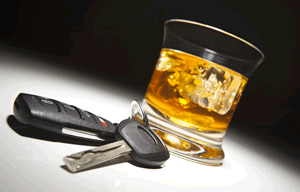What is the downside to filing bankruptcy?
Before filing bankruptcy it's important to understand there are serious ramifications for your decision. For this reason, filing bankruptcy is generally considered the last resort to manage your debts and should not be done unless it is absolutely necessary. Although it can be the right decision under certain conditions, if you find you have difficulty living under budget and have already filed bankruptcy in the past, it may be time to evaluate the decisions you are making rather filing bankruptcy multiple times.
Cons for filing Chapter 7 or Chapter 13 bankruptcy
- Filing bankruptcy will make it nearly impossible to get a mortgage.
Filing bankruptcy will substantially lower your credit score and will remain on your creditor report for 7 to 10 years. If you plan to buy a house within the next few years, filing bankruptcy is not a good idea. Although you will be able to eventually buy a home after filing bankruptcy, the courts will expect you to raise your credit score, complete your bankruptcy, which could take 3 or 5 years if you file Chapter 13 bankruptcy, and save a large down payment.
- Filing bankruptcy will remain on your creditor report 7 to 10 years.
As mentioned above, if you file bankruptcy this information will remain on your credit report for 7 to 10 years, making it difficult to purchase a home, get credit, buy a car, or get a job. Filing bankruptcy may also force you to stop using certain types of credit cards.
- Filing Chapter 7 bankruptcy may allow the court to sell some of your property.
Although certain assets are preserved and protected in bankruptcy through state and federal government bankruptcy exemption laws, if you file Chapter 7 bankruptcy the court will be able to take your non-exempt assets, sell them and use the proceeds from the sell to repay some of your creditors.
- Not all unsecured debts are discharged in bankruptcy.
Before filing Chapter 7 or Chapter 13 bankruptcy it's important to understand what debts are discharged. Debts not discharged by filing bankruptcy include unscheduled debts (any debts the debtor fails to list on the bankruptcy petition or include on the mailing list), certain tax debts, spousal and child support debts, government agency debts for fines and penalties, most student loan debts, personal injury debts from a DUI conviction, and certain tax-advantaged retirement plan debts.
- Bankruptcy is public and could be an embarrassment.
Although the public shame of filing bankruptcy has decreased substantially over the last decade, if you file bankruptcy you need to consider that the information from your bankruptcy will be public record. Anyone who is interested may be able to obtain information about your financial affairs, including your current or future employer.
Many employers, however, will not care about your financial affairs. Others may run a credit check prior to hiring you. Foe example, employers such as those involved in law enforcement or those who believe a cash-strapped employee could be a target for bribery may be less willing to hire someone who has filed bankruptcy or who is in a financial crisis.
Related Pages
Previous Question
What is the difference between Chapter 7 and Chapter 13 Bankruptcy?Next Question
What is the minimum debt requirement to file bankruptcy?Latest Question
Will my DUI case be dropped if the officer forgets to read Miranda Rights?
Understanding what can happen with your DUI case if the police officer forgets to read you the Miranda Rights
Category: DUI and DWI


